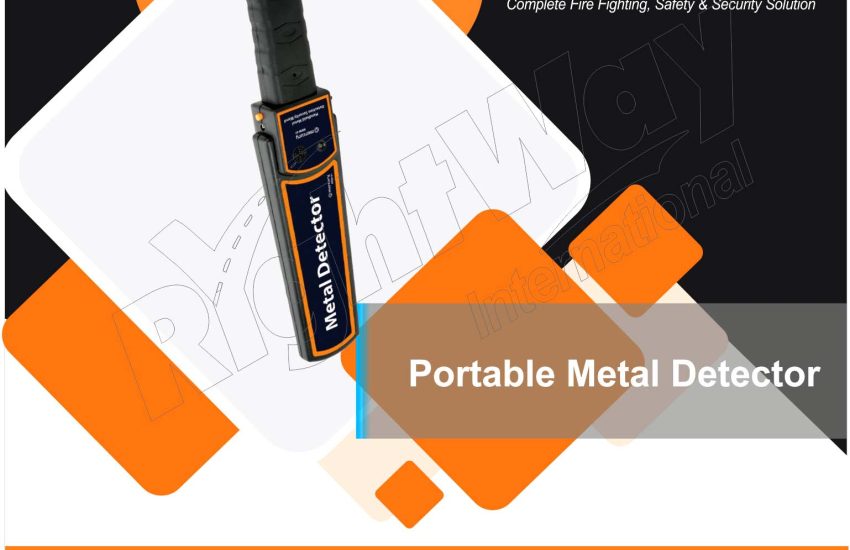Portable Metal Detector are essential tools used in a variety of fields, including security, archaeology, treasure hunting, and construction. Their versatility and ease of use make them valuable for detecting metal objects, whether for security purposes or recreational activities. This article explores the key features, applications, benefits, and best practices for using portable metal detectors.
Features of Portable Metal Detector
Portable metal detectors come with a range of features designed to enhance their performance and usability:
- Sensitivity and Detection Depth: The sensitivity level of a metal detector determines how well it can detect metal objects at varying depths. High sensitivity detectors can locate smaller or deeper objects, which is crucial for detailed searches.
- Adjustable Settings: Many portable metal detectors offer adjustable settings for discrimination (the ability to differentiate between types of metals), sensitivity, and ground balance. These settings help users customize the detector’s performance based on their specific needs.
- Coil Size and Shape: The size and shape of the search coil affect the detector’s coverage area and depth of detection. Larger coils cover more ground and detect deeper, while smaller coils offer better discrimination and can reach into tighter spaces.
- Audio and Visual Indicators: Portable metal detectors typically feature audio alerts (beeps or tones) and visual indicators (LED lights or digital displays) to signal the presence of metal. This dual feedback system helps users identify and locate objects more easily.
- Ergonomics and Portability: Designed for ease of use, portable metal detectors often include adjustable handles, lightweight materials, and comfortable grips. These features ensure that users can operate the detector for extended periods without discomfort.
- Water Resistance: Some metal detectors are designed to be water-resistant or waterproof, allowing for use in wet environments, such as beaches or shallow water.
Applications of Portable Metal Detectors
- Security Screening: Portable metal detectors are widely used in security settings, such as airports, concerts, and public events, to detect concealed weapons or prohibited items.
- Treasure Hunting: Enthusiasts and hobbyists use metal detectors to search for valuable items, such as coins, jewelry, and historical artifacts. This recreational activity combines technology with adventure.
- Archaeology: Archaeologists use metal detectors to locate and identify metal artifacts in excavation sites. The detectors help in finding buried historical objects without extensive digging.
- Construction and Surveying: In construction and surveying, metal detectors help locate buried utilities, rebar, or other metal objects within structures and ground, ensuring safe excavation and renovation.
- Environmental Monitoring: Metal detectors can be employed in environmental monitoring to detect metal contamination in soil or water, aiding in pollution assessment and cleanup.
Benefits of Using Portable Metal Detector
- Efficiency: Portable metal detectors speed up the process of locating metal objects compared to manual searching, increasing efficiency and accuracy.
- Non-Intrusive: Metal detectors offer a non-invasive method for finding buried or hidden objects, minimizing damage to the surrounding area.
- Versatility: With adjustable settings and various applications, portable metal detectors are adaptable to different environments and needs, making them a versatile tool.
- User-Friendly: Modern metal detectors are designed to be easy to use, even for beginners. User-friendly features and intuitive controls make operation straightforward and accessible.
Best Practices for Using Portable Metal Detectors
- Familiarize Yourself with the Equipment: Before starting, thoroughly read the user manual and understand the detector’s settings and functions. Practice using the detector in a controlled environment to get accustomed to its operation.
- Adjust Settings Appropriately: Customize the sensitivity, discrimination, and ground balance settings based on the environment and type of metal you are searching for. Proper adjustments improve detection accuracy and efficiency.
- Use Proper Technique: Sweep the detector’s coil slowly and evenly over the ground, keeping it close to the surface. Overlapping your sweeps ensures that you cover the area thoroughly and do not miss potential finds.
- Stay Aware of Your Surroundings: Be mindful of your surroundings and potential hazards, such as buried utilities or hazardous materials, especially when working in unfamiliar or undeveloped areas.
- Regular Maintenance: Keep the metal detector clean and well-maintained. Check for battery levels, clean the coil after use, and inspect the equipment for any signs of wear or damage.
- Respect Regulations and Permissions: Ensure that you have the necessary permissions to search in specific areas, especially on private property or protected sites. Follow local regulations and guidelines to avoid legal issues.
Conclusion
Portable metal detectors are valuable tools with diverse applications, from security screening and treasure hunting to archaeological research and environmental monitoring. By understanding their features, applications, and best practices, users can maximize the effectiveness of their metal detectors and enjoy a range of benefits. Whether for professional use or recreational activities, a well-chosen and properly maintained metal detector can significantly enhance the search for metal objects and provide valuable insights into hidden treasures.


